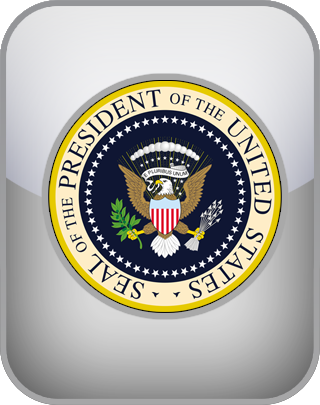Academically reviewed by Dr. Jennifer Schulz, Ph.D., associate professor of psychology
Presidential Morality Test
The scientific Moral Foundations framework holds that politics can often be analyzed in terms of deeper-lying instincts that will predict what politics and position a person is likely to resonate with. By using machine learning to analyze the writings and biographies of 24 U.S. presidents, this test will determine which president’s morality is the closest to yours.
To take the test, indicate your answers to each of the following questions below.
Question 1 of 20
Affirmative action programs should be increased or maintained.
| Disagree | Agree |
NEXT
The IDRlabs Presidential Morality Test was compiled from various studies in Moral Foundations Theory.
U.S. Presidents often navigate complex moral landscapes shaped by their personal beliefs, the expectations of their constituencies, and the demands of the office. Their moral foundations can be examined through the lens of the five traits—Nurture, Equality, Merit, Heritage, and Freedom—which reflect broader ideological principles and priorities in governance.
Presidents with a strong foundation in nurture often prioritize policies aimed at caring for the vulnerable and enhancing societal well-being. Franklin D. Roosevelt exemplifies this trait through his New Deal programs, which sought to provide economic relief, social security, and support for the unemployed during the Great Depression. His approach reflected a belief that the government has a moral responsibility to care for its citizens, especially in times of crisis. Lyndon B. Johnson, with his Great Society initiatives, similarly focused on reducing poverty and racial injustice, demonstrating a commitment to nurture by expanding government intervention to promote welfare and health care.
A focus on equality has been a defining trait of several U.S. Presidents, particularly those who have sought to address systemic inequities and promote social justice. Abraham Lincoln's leadership during the Civil War and his efforts to abolish slavery through the Emancipation Proclamation and the 13th Amendment underscore a deep moral commitment to equality. Similarly, Barack Obama's presidency, with its emphasis on healthcare reform through the Affordable Care Act and support for LGBTQ+ rights, reflects a dedication to reducing disparities and ensuring that all citizens have access to equal opportunities and protections under the law. These presidents demonstrate a belief in the moral imperative to correct injustices and promote a more equitable society.
The concept of merit has been central to presidents who emphasize the importance of individual achievement and the value of rewarding hard work and talent. Ronald Reagan, for example, championed the idea that the free market and personal initiative should determine success with less government interference. His administration's policies often reflected a belief in meritocracy, where individuals should reap the rewards of their own efforts, as seen in his tax cuts aimed at stimulating economic growth. This moral foundation underscores a belief in fairness as derived from one's abilities and achievements rather than redistributive policies.
Presidents who prioritize heritage tend to emphasize traditional values, patriotism, and the preservation of American cultural symbols. George W. Bush, for instance, often invoked themes of patriotism and moral clarity, particularly in the context of the post-9/11 era. His administration's focus on promoting traditional values, support for faith-based initiatives, and a strong national defense reflects a moral foundation rooted in heritage. Similarly, Donald Trump's "Make America Great Again" campaign was heavily centered on restoring and preserving what he portrayed as the traditional values and identity of the nation. This emphasis on heritage highlights a moral commitment to maintaining continuity with the past and upholding the symbols and norms that define national identity.
Presidents with a strong commitment to freedom often prioritize individual liberties and limited government intervention. Thomas Jefferson, the principal author of the Declaration of Independence, exemplified this trait with his advocacy for states' rights and limited federal government, reflecting a belief in the primacy of individual freedom. Similarly, Calvin Coolidge's presidency is often remembered for his laissez-faire approach to governance, where he believed that the government should interfere as little as possible in the lives of citizens. This moral foundation emphasizes the importance of personal autonomy and the belief that individuals should be free to make their own choices without excessive government control.
In summary, U.S. Presidents' moral foundations, as seen through the lenses of Nurture, Equality, Merit, Heritage, and Freedom, provide insights into their governing philosophies and policy priorities. These traits not only shape their decisions but also reflect broader ideological currents that resonate with different segments of the American populace. Understanding these moral foundations offers a deeper comprehension of presidential leadership and its impact on the nation's direction.
The authors of this free online Presidential Morality Test are certified in the use of various personality tests and have worked professionally with psychology, political psychology, and personality testing. Prior to using our free online test, please note that the results are provided "as-is", for free, and should not be construed as providing professional or certified advice of any kind. For more on our online quiz, please consult our Terms of Service.
References
- Graham, J., Nosek, B. A., Haidt, J., Iyer, R., Koleva, S., Ditto, P.: Mapping the Moral Domain Journal of Personality and Social Psychology 101(2), 2011
- Graham, J., Haidt, J., Nosek, Brian A.: Liberals and Conservatives Rely on Different Sets of Moral Foundations Journal of Personality and Social Psychology 96, 2009
- Iyer R., Koleva S., Graham J., Ditto P., Haidt J.: Understanding Libertarian Morality PLoS ONE 7(8), 2012
- Kim, K.R., Kang, J., Yun, S.: Moral Intuitions and Political Orientation Psychological Reports 111(1), 2012
- Nilsson, A., Erlandsson, A.: The Moral Foundations Taxonomy Personality and Individual Differences 76, 2015
- Clifford, S., Iyengar, V., Cabeza, R., Sinnott-Armstrong, W.: Moral Foundations Vignettes Behavior Research Methods, 2015
- YouGov: Cato Institute National Survey on Policing and Criminal Justice, Cato Institute/YouGov, November 19-24, 2015
- Gross, N., Medvetz, T. Russell, R.: The Contemporary American Conservative Movement Annual Review of Sociology 37, 2011

